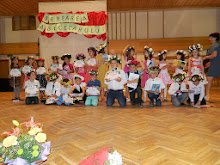Introduce
Pornind de la o iniţiativă a Comisiei Europene, lansată în 2005 şi coordonată de European Schoolnet, cu scopul iniţial de a facilita parteneriatele între instituţii de învăţământ preuniversitar din Europa, platforma etwinning.net a devenit în timp o comunitate importantă a şcolilor din Europa, reunind până în prezent peste 200.000 de cadre didactice din peste 95.000 de şcoli.
eTwinning în România
Coordonată de Centrul pentru Inovare în Educaţie - TEHNE (www.tehne.ro), în parteneriat cu Institutul de Ştiinţe ale Educaţiei (www.ise.ro), acţiunea eTwinning reuneşte peste 12.500 de cadre didactice din 5000 de şcoli din România care s-au implicat în peste 5500 de proiecte derulate în parteneriat cu profesori și elevi ai școlilor din toată Europa.
Punctul forte al acţiunii eTwinning, este faptul că stimulează comunicarea, indiferent de subiectul abordat. Dublul proces de relaţionare cu ajutorul limbajului, care are loc în timpul unui proiect, permite elevilor să-şi definească şi să demareze un proces de concepere de cunoştinţe şi de formare de competenţe, îi va determina să conştientizeze „capitalul lor cultural”, precum şi pe cel al partenerilor. În acest sens, se observă că tehnologiile moderne, cu a lor capacitate de compunere a unui conţinut multimedia, favorizează creativitatea şi interactivitatea cu diferite tipuri de limbaj.
În plus, conform studiului efectuat de Centrul pentru Inovare în Educație, distribuţia proiectelor pe arii curriculare este foarte variată:
Limba unei
comunităţi deschide calea către cultura acesteia. Cultura este un proces
dinamic, care ia naştere în timp. În contextul unei globalizări galopante, este
esenţial să rămânem racordaţi la rădăcinile culturale care ne definesc ca
naţiune, dar şi ca europeni, eTwinning
fiind primul pas către îndeplinirea acestui vis.
Prin urmare eTwinning poate fi
considerat o contribuţie majoră la învăţământul european, mai ales în domeniul
lingvistic şi cultural, un bun exemplu de cooperare într-un domeniu care, până
nu demult, era dificil de abordat sau de schimbat.
Proiectul Jucării dintr-o altă ţară a
urmărit realizarea unui schimb de jucării dintre clasa I de la o şcoală
de copii surzi (Hamilton School for Deaf ) din Glasgow Scoţia şi clasa I
şi a III-a de la Şcoala “Dimitrie Anghel” Corneşti-Miroslava-Iaşi,
înainte de Sărbătoarea de Crăciun. Copiii au luat acasă jucăria şi au
păstrat un jurnal despre ceea ce au făcut cu ea. Acest lucru i-a ajutat
în activităţi de dezvoltare a limbajului, de intercunoaştere şi de
învăţare a unor noţiuni noi despre cultura altei ţari şi la crearea unor
legături durabile între şcoli aflate în ţări diferite.Scopul proiectului a fost:
• Utilizarea portalului eTwinning, de către elevii scoţieni, pentru a pune întrebări referitoare la tradiţiile şi cultura din România şi informarea copiilor români cu privire la tradiţiile şi cultura scoţiană.
Obiectivele urmărite au fost:
• Implicarea copiilor în cultura şi tradiţiile altor ţări;
• Stimularea interesului pentru cunoaştere cu ajutorul unei jucării tradiţionale;
• Dezvoltarea competenţelor de învăţare a citirii şi scrierii ale copiilor;
Elevii din cele două şcoli au schimbat informaţii despre România şi Scoţia, au expediat şi au primit scrisori de prezentare şi au descris animalele lor preferate prin intermediul cuvintelor, dar şi al desenelor.
Beneficii
Cel mai emoţionant moment, trăit deopotrivă de copiii din ambele ţări, a fost cel în care s-a deschis pachetul şi copiii au găsit jucăria. Atât căţeluşul Hamish cât şi şoricelul Ronţi au fost mesageri ai copilăriei, ai prieteniei fără graniţe şi au bucurat sufletele tuturor copiilor participanţi.
Proiectul a fost prezentat anul trecut în cadrul Concursului Naţional Trofeul dascălilor, care s-a derulat la Braşov, sub coordonarea Fundaţiei Îngeraşul meu şi a fost recompensat cu premiul al II-lea la secţiunea învăţământ primar.
Bibliografie:
- Crawley, Cristina; Gerhard, Paul; Gilleran, Anne; Joyce, Alexa, eTwinning, Aventuri pe tărâmuri lingvistice şi culturale (2008), Centrul de Coordonare eTwinning, European Schoolnet, Bruxelles, Belgia;
- ISTRATE, O. et al. (2013) Rolul proiectelor educaționale realizate prin parteneriate școlare internationale. Raport preliminar eTwinning RO12. București, TEHNE- Centrul pentru Inovare


